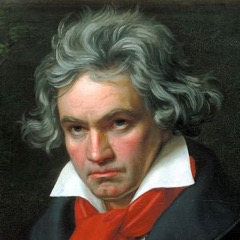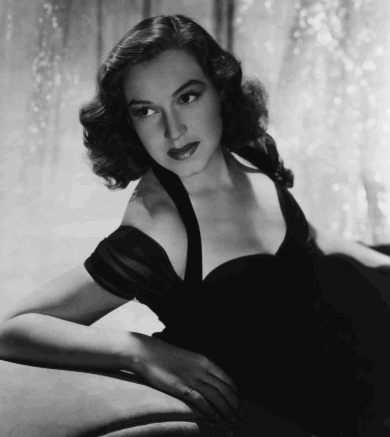Risë Stevens
Rosa Raisa was born Raitza Burchstein in Bialystok, Poland in 1893. When she was 14 she fled Poland because of the Bialystok pogrom. She emigrated to Italy and studied at the conservatory in Naples. At age 20 she was engaged to sing in Parma for the 1913 Verdi centenary, and that year sang her 1st performances in the U.S. in Philadelphia and Chicago. In 1914 she debuted in London singing with John McCormack and Enrico Caruso. The next year Raisa sang the South American premiere of Der Rosenkavalier.
In 1924 she sang the world premiere of Boito’s last opera, Nerone with Toscanini at La Scala. And chosen by Puccini, in 1926 she sang the world premiere of Turandot again with Toscanini at La Scala. Raisa died in 1963 from bone cancer.
George London was born George Burnstein in 1920 in Montreal. He grew up in Los Angeles. He made his Met debut in 1951 and sang over 270 performances there in baritone and bass-baritone roles. London sang part of Tosca with Maria Callas on the Ed Sullivan Show in 1956. He sang Wotan in the legendary recording of Das Rheingold conducted by Geog Solti in 1958. And in 1960 at the height of the cold war he was the 1st American to sing Boris Godunov at the Bolshoi Opera in Moscow.
He suffered from a paralyzed vocal chord and stopped singing when he was 46. In 1971 he established the George London Foundation for Singers which gives grants to young singers, $80,000 each year to the winners of an annual competition. He stage directed the first production of the RING cycle for the Seattle Opera in 1975, and that year became the General Director of the Washington National Opera. In 1977 he suffered the 1st of 3 heart attacks, with brain damage that left him partially paralyzed. He died in Armonk, NY at age 65.
Natalie Dessay was born in Lyon, France in 1965. She initially intended to become a ballet dancer, then an actress. She trained at the Conservatoire de Bordeaux and quickly became successful singing in Europe and made her Met debut in 1994. And she opened the Met’s 2007-2008 season singing a new production of Lucia.
In 2013 she starred in the film Becoming Traviata and that year announced her retirement from opera to pursue a career as a dramatic actress and chansonnier. She is married to the bass baritone Laurent Naouri and she converted to his Jewish faith. They have 2 children.
Alexander Kipnis, one of the greatest basses ever, was born in Ukraine in 1891. His impoverished family of 7 lived in a Jewish ghetto. After the death of his father at age 12, Kipnis supported his family as a carpenter’s apprentice and by singing soprano in local synagogues and in Moldova. As a teenager he performed in a Yiddish Theatrical group, and entered the Warsaw Conservatory at 19, where he studied trombone, double bass, and conducting, while continuing to sing in synagogues. He then studied in Berlin with Ernst Grenzebach who was Lauritz Melchoir’s teacher.
He made his debut in Hamburg in 1915. In 1917 he began singing in Wiesbaden where he gave more than 300 performances. Kipnis also sang at the Salzburg Festival, at Bayreuth, the Chicago Civic Opera, and until 1935 with the Berlin State Opera, when he fled Nazi Germany and sang with the Vienna State Opera until the Anschluss in 1938. His Met debut was in 1940.
Kipnis sang many times with Toscanini, including productions of Tristan, Tannhäuser, The Magic Flute, Fidelio, Beethoven’s 9th Symphony, his Missa Solemnis, and Verdi’s Requiem. Kipnis died in 1978 at age 87. His son was the famous harpsichord player, Igor Kipnis.
Friedrich Schorr was born in Nagyvarad, in the Austrian-Hungarian Empire in 1888. He was considered the greatest Wagnerian bass baritone of his generation. He was the son of a cantor, and sang all over the world, making his Met debut in 1924 and sang there for 19 years. He emigrated to the U.S. in 1931. He died in Farmington, NY in 1953.
Some of his recordings were made when he was passed his vocal prime, yet they demonstrate the great emotional expressiveness of his singing.
Risë Stevens was born in New York City in 1913 as Risë Steenberg. She studied at the Juilliard School and continued her training in Vienna. She made her Metropolitan Opera debut in 1938. Stevens made several movies including The Chocolate Soldier with Nelson Eddy and Going My Way with Bing Crosby. Her voice was insured by Lloyd’s of London in 1945 for $1 million dollars.
For 23 years Stevens was the Met’s leading mezzo soprano and the only mezzo to command top billing and fees normally awarded only to star tenors and sopranos. She was especially celebrated for her performances of Carmen. Her recording of Carmen with Licia Albanese, Jan Peerce, and Robert Merrill has never been out of print.
After her retirement from the operatic stage she became the General Manager of the Metropolitan Opera National Company for several years, and devoted a great deal of her time to coaching young singers. In 1990 she was a Kennedy Center honoree. She died in her home in New York, just 7 weeks before her 100th birthday.
Richard Tauber was born in Austria in 1891. He wanted very much to become a singer but none of the voice teachers he auditioned for accepted him. So he entered the conservatory in Frankfurt and studied piano, composition and conducting. He made his debut in 1913 and sang for 5 years at the Dresden Opera. He was a remarkably quick study. He learned Gounod’s Faust in 48 hours. He learned Strauss’s Ariadne auf Naxos in one afternoon! Tauber made more than 700 recordings. He was also a composer and a conductor. Franz Lehar composed several operettas for Tauber including The Land of Smiles.
In 1933 he was attacked by a group of Nazis whereupon he left Germany for his native Austria, and continued singing at the Vienna State Opera until the Anschluss in 1938. He then became a British citizen where he remained singing and conducting during WW II. He died from lung cancer in 1948 in London.
Regina Resnik was born in the Bronx in 1922. Her parents had just emigrated from Ukraine. She earned a Bachelor’s degree from Hunter College in 1942 and immediately began singing opera professionally. 2 years later she won the Metropolitan Opera Auditions of the Air and she was called to substitute for soprano Zinka Milanov singing Il Trovatore.
Then in 1953 she realized that her voice had been consistently darkening in color, and while singing at Bayreuth, the conductor Clemens Krauss suggested that she was actually a mezzo soprano. So she took a year off and studied with the baritone Giuseppe Danise who had sung with Toscanini. As a mezzo she was enormously successful. She sang all over the world in 6 languages and the Met was her home base. She was the only singer in the history of opera who sang both the soprano and mezzo soprano roles in much of the repertoire. She received honorary doctorate degrees from Hunter College and the New England Conservatory and was a board member of the Metropolitan Opera Guild. She died in 2013 in New York from a stroke. She was 90.
Here is a short video: https://youtu.be/t2lIdbOnJbA

